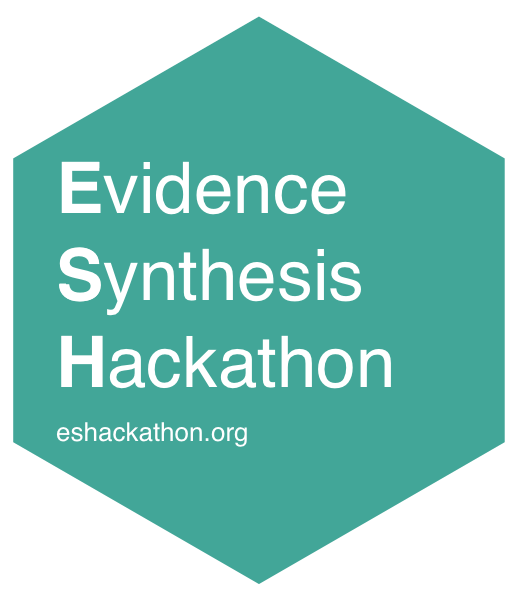Status: Published
The number of publications has been increasing exponentially, and as a result, so has the research field of evidence synthesis. Consequently, there is now a need to maintain the quality, currency and credibility of evidence synthesis approaches. Within this commentary, we provide a vision for evidence synthesis as a fundamental tool for generating and guiding decision-making. This paper is aimed at all stakeholders, including researchers, institutions, and the broader general community.
ESMARConf | Evidence Synthesis and Meta-Analysis in R Conference
ESMARConf is a FREE, online annual conference series dedicated to evidence synthesis and meta-analysis in R. Our aim is to raise awareness of the utility of Open Source tools in R for conducting all aspects of evidence syntheses (systematic reviews/maps, meta-analysis, rapid reviews, scoping reviews, etc.), to build capacity for conducting rigorous evidence syntheses, to support the development of novel tools and frameworks for robust evidence synthesis, and to support a community of practice working in evidence synthesis tool development. ESMARConf began in 2021 and is coordinated by the Evidence Synthesis Hackathon.
ESTech special series | Special series of published papers
As the appreciation and need for timely and rigorous evidence synthesis continue to grow, so too will the need for tools and frameworks to conduct reviews of expanding evidence bases in an efficient and time-sensitive manner. Efforts to future-proof evidence synthesis through such Evidence Synthesis Technology (ESTech) have so far been isolated across interested individuals or groups, with no concerted effort to collaborate or build communities of practice in technology production.
Making primary research synthesis ready | Proposed academic paper
Evidence synthesis relies on primary research that is reliable, transparent, and where key information is readily accessible and useful for broader synthesis. We propose a succinct list of ideal attributes that primary research articles should report as standard so that they are more likely to be found and included in evidence syntheses. We discuss how implementing these changes to primary research reporting might be incentivised for authors, peer reviewers, editors, journals, and institutions such changes and this broad across medicine, environment, ecology, and social science disciplines. We focus on the area of prevention science, but our conclusions are applicable across disciplines and fields.
